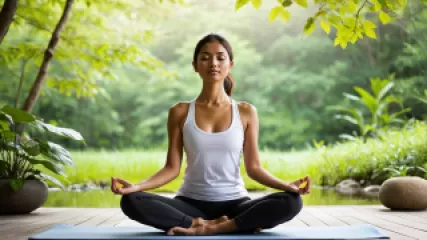Effective Relaxation Techniques for Mental Health
Introduction:
Mental health is a crucial aspect of overall well-being, and finding effective relaxation techniques can significantly contribute to maintaining a healthy mind. In today's fast-paced world, stress and anxiety have become common issues that can impact mental health. However, incorporating regular relaxation techniques into your routine can help alleviate stress, reduce anxiety, and promote a state of calmness and peace.
Understanding the Importance of Relaxation Techniques
Relaxation techniques are practices or activities that help individuals achieve a state of deep relaxation by activating the body's natural relaxation response. These techniques focus on calming the mind, reducing muscle tension, and promoting a sense of tranquility. By incorporating relaxation techniques into your daily life, you can experience numerous benefits for your mental health.
The Benefits of Relaxation Techniques for Mental Health
1. Stress Reduction: Relaxation techniques are known to be effective in reducing stress levels. By engaging in relaxation practices, you can lower the production of stress hormones in the body, leading to a decreased physiological response to stressors.
2. Anxiety Relief: Individuals experiencing anxiety often find solace in relaxation techniques. These techniques can help regulate breathing patterns, decrease heart rate, and induce a sense of calmness, providing relief from anxious thoughts and feelings.
3. Enhanced Emotional Well-being: Regular practice of relaxation techniques can improve emotional well-being by promoting feelings of happiness and contentment. These techniques encourage mindfulness, allowing individuals to focus on the present moment and cultivate positive emotions.
4. Improved Sleep Quality: Many relaxation techniques, such as deep breathing exercises and progressive muscle relaxation, can aid in improving sleep quality. By reducing stress and anxiety levels before bedtime, individuals can experience a more restful and rejuvenating sleep.
5. Boosted Cognitive Functioning: Engaging in relaxation techniques can enhance cognitive functioning by improving focus, concentration, and memory. By reducing stress and anxiety, individuals can think more clearly and make better decisions.
Effective Relaxation Techniques for Mental Health
1. Deep Breathing Exercises:
Deep breathing exercises are simple yet powerful relaxation techniques that can be practiced anywhere, anytime. Find a quiet place, sit comfortably, and take slow, deep breaths. Inhale deeply through your nose, hold the breath for a few seconds, and exhale slowly through your mouth. Focus on the sensation of your breath entering and leaving your body, allowing your mind to become calm and centered.
2. Progressive Muscle Relaxation:
Progressive muscle relaxation involves tensing and releasing different muscle groups in the body to achieve a state of deep relaxation. Start by tensing a specific muscle group, such as your shoulders, for a few seconds, and then release the tension while focusing on the sensations of relaxation. Move through each muscle group, from head to toe, progressively relaxing your entire body.
3. Mindfulness Meditation:
Mindfulness meditation is a practice that involves bringing your attention to the present moment without judgment. Find a quiet space, sit comfortably, and focus on your breath or a specific object. Whenever your mind wanders, gently bring your attention back to the present moment. Regular mindfulness meditation can help reduce stress, improve concentration, and cultivate a sense of inner peace.
4. Guided Imagery:
Guided imagery is a relaxation technique that involves using your imagination to create a peaceful and calming mental image. Close your eyes, take deep breaths, and visualize yourself in a serene environment, such as a beach or a lush forest. Engage all your senses in the imagery, imagining the sights, sounds, smells, and sensations. Allow yourself to fully immerse in the peaceful scene and experience a deep sense of relaxation.
5. Yoga and Tai Chi:
Yoga and Tai Chi are ancient practices that combine physical movements, breath control, and mindfulness. These practices promote relaxation, flexibility, and balance while calming the mind. Regular practice of yoga or Tai Chi can help reduce stress, improve mental clarity, and enhance overall well-being.
Conclusion:
Incorporating effective relaxation techniques into your daily routine is essential for maintaining good mental health. By practicing techniques such as deep breathing exercises, progressive muscle relaxation, mindfulness meditation, guided imagery, and engaging in activities like yoga or Tai Chi, you can reduce stress, alleviate anxiety, and promote a sense of inner calmness. Remember, finding the right relaxation techniques that work for you may require some experimentation, so be patient and persistent in discovering what brings you the most peace and tranquility.






